10368
MHz EME
NOTE: Design and construction of a 3 cm EME rig is ongoing. I will update this page as the work proceeds.
The
antenna for 10368 MHz EME is my 5.5 m dish with a f/D of
0.366.
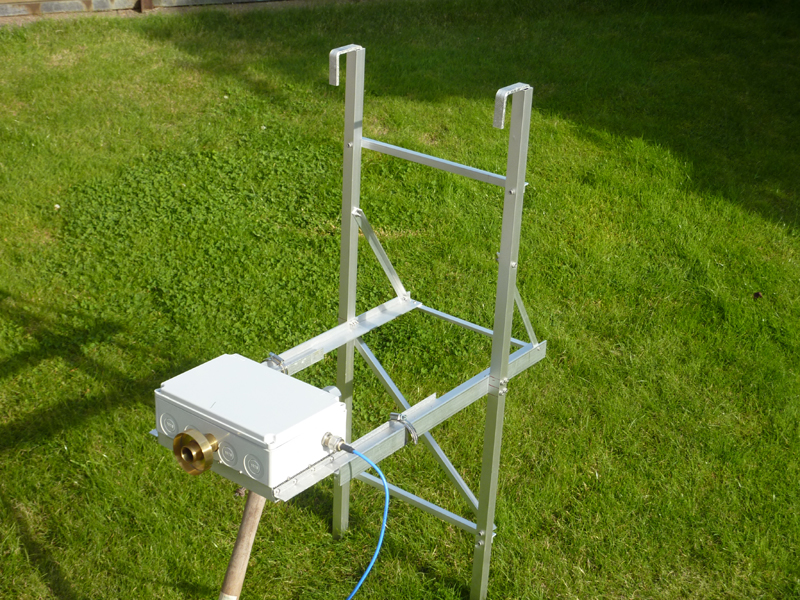 3cm RF-head during construction
3cm RF-head during construction
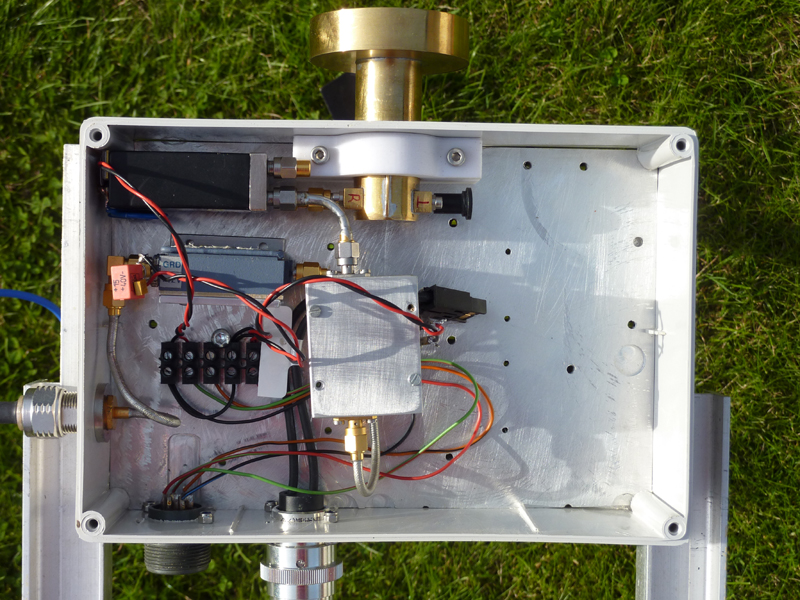 Interior of present 3cm RF-head during construction. Ready for receive.
Interior of present 3cm RF-head during construction. Ready for receive.
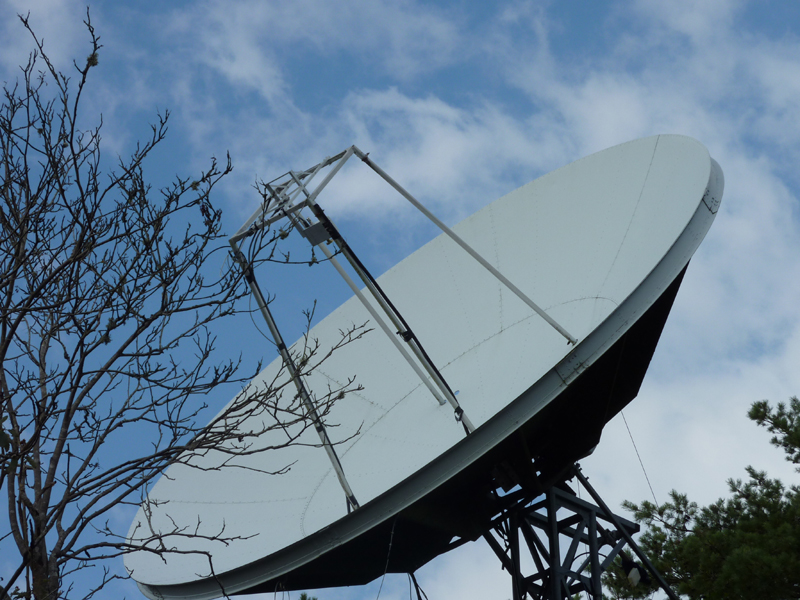 5.5 m dish
with 3cm RF-head
5.5 m dish
with 3cm RF-head
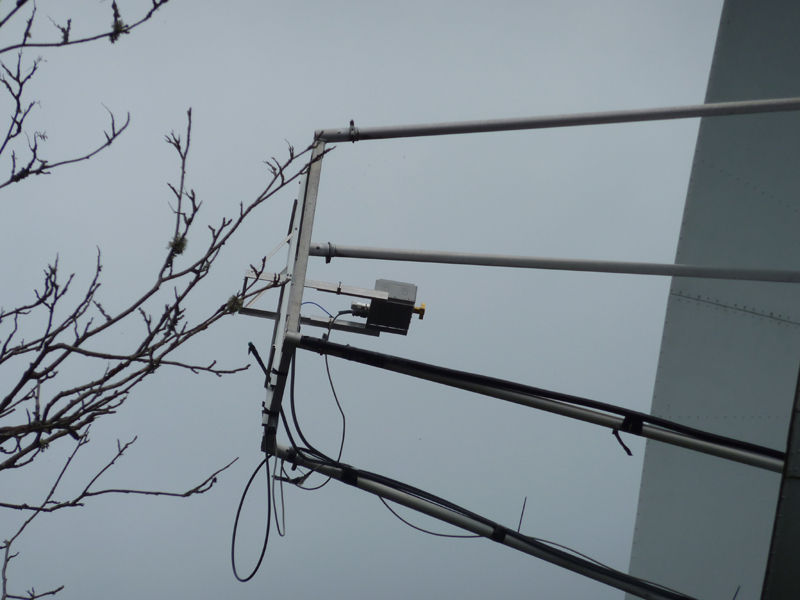 3cm RF-head in the dish
3cm RF-head in the dish
I
am using
the SM6FHZ 5 step septum feed horn (0.760 wl wave guide) for circular polarisation on 3 cm EME. Designed by SM6FHZ and
built by SM6PGP.
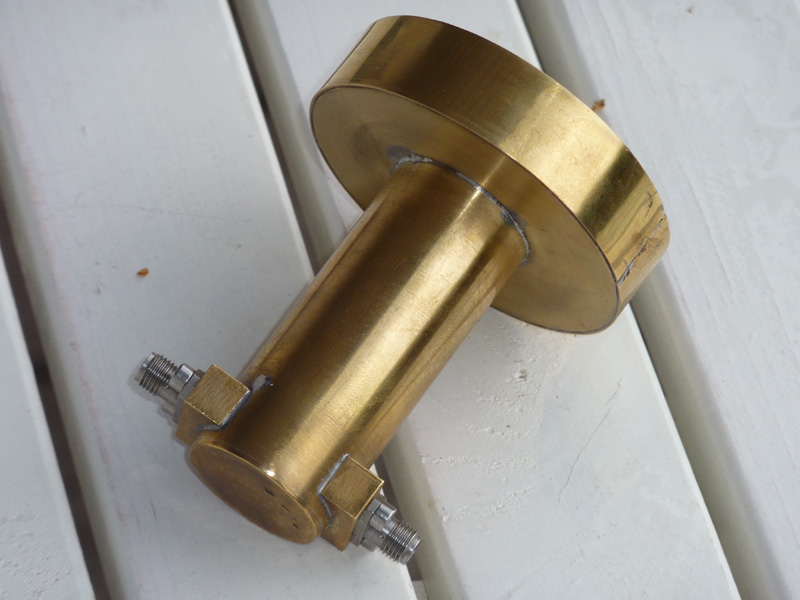 SM6FHZ
5 step septum feed horn for 3 cm
SM6FHZ
5 step septum feed horn for 3 cm
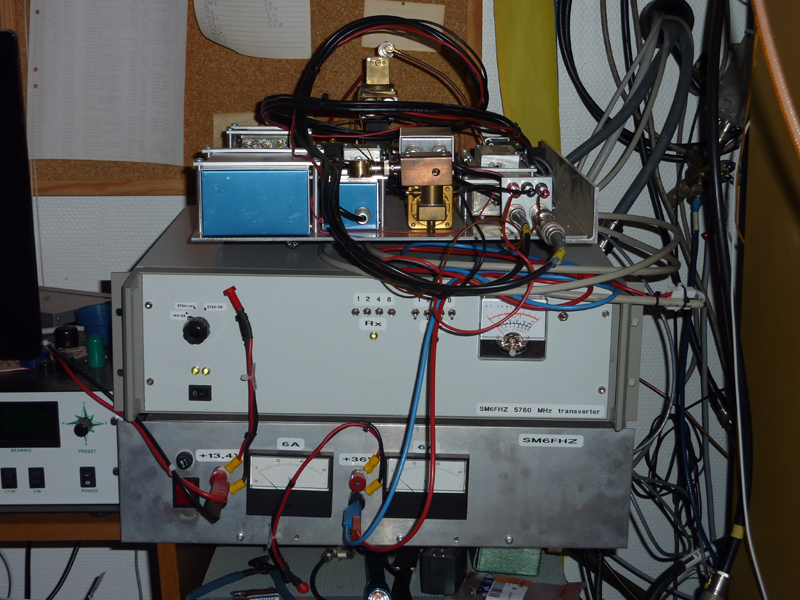 3cm transverter on top of the 6 cm transverter and the power supply
3cm transverter on top of the 6 cm transverter and the power supply
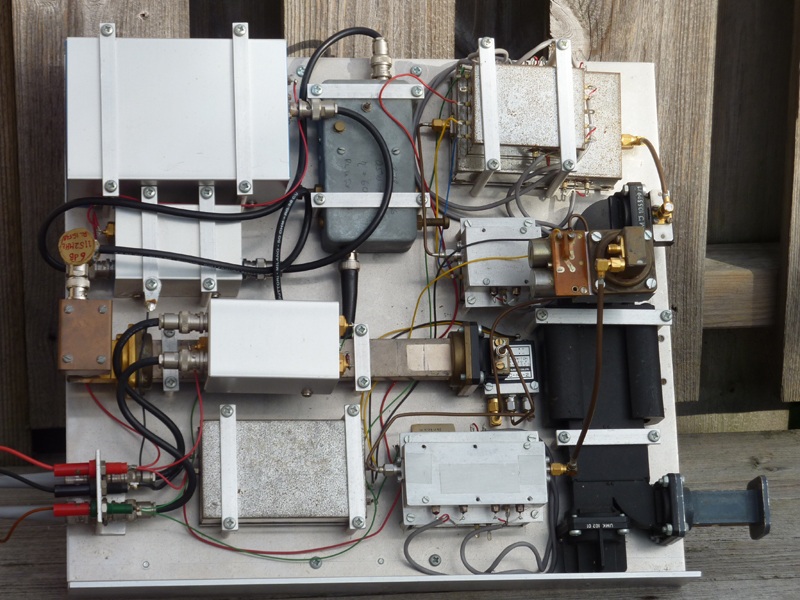 3cm transverter
3cm transverter
Equipment
on 3 cm EME:
Antenna:
5.5 m solid dish, 0.366 f/D (SM6FHZ EME dish) giving 0.37 deg half
power beam-width
The 6 cm RF-head is
situated at the focal point of the dish and contains:
Feed:
5 step septum in a circular
WG and using a Kumar choke (
SM6FHZ
design and built by SM6PGP)
PA: TGA 2312-FL GaN transistor amp by G3WDG, giving about 35 W at the feed driven by
one Mimix1006.
LNA:
Home made dual stage LNA with 1.5 dB NF and 24.5 dB gain driving a
post-amplifier Avantek SA83-0282M 10.95-12.75 GHz 38 dB gain and 2.6 dB
NF at 10368 MHz.
Transverter:
SM6FHZ ancient 3 cm transverter with a G3JVL mixer in the shack giving 0.5 W to 16 m of 1/2" Heliax
cable to the RF-head (~50 mW available at the RF-head)
Auto
moon tracking with a OE5JFL controller.
Sun noise on TBD 2015 (flux = TBD): TBD dB and more than TBD dB of moon noise
(2015-TBD, moon distance ~TBD km). Cold sky to ground is slightly
more than 3.5 dB.
Measurements on 3 cm EME:
3cm Moon noise on September xxth, 2015
3cm Sun noise on September xxth, 2015
Example of spatial polarisation from SM6 to selected parts of the world across a full Moon pass:
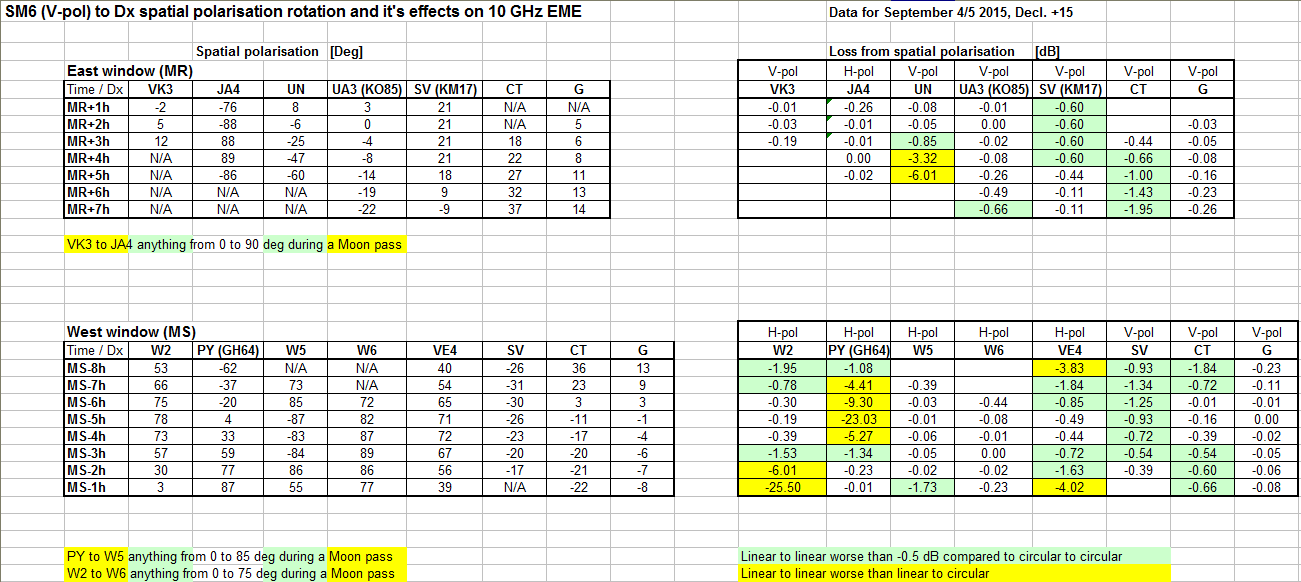
The data was collected by
using VK3UM EMEPlanner and checking the mutual polarisation hour for
hour for each path. The spatial polarisation rotation is a slow and
predictable process so one sample every hour would be sufficient in
order to see what is happening.
One conclusion that could be drawn from the above table is that many
stations would benefit from using circular to circular polarisation in
a contest scenario, with many stations from different parts of the
world QRV at the same time. The time available for QSO's would increase
and a lot of uncertainties would vanish.
SM6FHZ 10368 MHz EME initials list (2015-TBD), all worked from JO57XJ:
To be continued........

Updated September 13, 2015.
http://www.2ingandlin.se/SM6FHZ.htm
 3cm RF-head during construction
3cm RF-head during construction 3cm RF-head during construction
3cm RF-head during construction Interior of present 3cm RF-head during construction. Ready for receive.
Interior of present 3cm RF-head during construction. Ready for receive. 5.5 m dish
with 3cm RF-head
5.5 m dish
with 3cm RF-head 3cm RF-head in the dish
3cm RF-head in the dish SM6FHZ
5 step septum feed horn for 3 cm
SM6FHZ
5 step septum feed horn for 3 cm  3cm transverter on top of the 6 cm transverter and the power supply
3cm transverter on top of the 6 cm transverter and the power supply 3cm transverter
3cm transverter